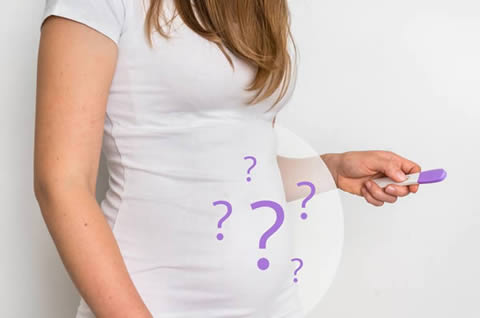How Does Endometriosis Affect Fertility and Pregnancy?
As we continue our series about endometriosis, today we address how endo might affect fertility and pregnancy.
Endometriosis Does Not Equal Infertility
Having endometriosis does not automatically mean that you will never have children. What it does mean is that you might have more trouble getting pregnant. About 30% of those with endometriosis have trouble with fertility and struggle to get pregnant. Others with endometriosis have no difficulty getting pregnant, or eventually get pregnant after utilizing medical interventions including surgery to remove endometrial growths, or reproductive technologies like in vitro fertilization to help with conception.
Does Endometriosis Affect Fertility?
An estimated 5-25% of women with infertility have endometriosis (Fadhlaoui, Bouquet de la Jolinière, & Feki, 2014). Although the exact ways in which the disease may affect fertility are not fully understood, they may include:
- Causes pelvic pain that makes sex uncomfortable or painful
- Inflammation of the uterus that impairs fertility
- Problems with the quality of the egg cells
- Environmental changes that negatively affect sperm and the ability of a fertilized egg to implant in the uterine wall
- Pelvic adhesions and endometrial growths that prevent egg cell release and travel along the fallopian tube
- Adhesions and growths that can physically block the movement of sperm
When to See Your Doctor
If you have endometriosis and are concerned about fertility, go see your doctor or get a referral to a doctor that specializes in fertility. Fertility specialists can help determine how healthy your egg supply is and help determine which procedures that might benefit you.
Endometriosis, Pregnancy & Delivery
Once pregnant, those with endo might worry about how the disease might impact their pregnancy and delivery.
Endometriosis is a risk factor for the following pregnancy complications:
- Pre-term birth: the baby being born before 40 weeks
- Bleeding after the 24th week of pregnancy and complications with the placenta
- Pre-eclampsia, or high blood pressure
- Delivery by caesarean section
So, it’s very important to receive ongoing maternal care throughout the pregnancy to help monitor these risks.
Does Pregnancy Cure Endometriosis?
Pregnancy does not cure endometriosis. In some cases, symptoms may improve during pregnancy due to higher levels of the progesterone hormone in the body can help suppress endometrial growth. These effects may only be temporary and many experience a return in symptoms after delivery.
How Does Pelvic Floor Therapy Fit in?
Pelvic floor therapy will not cure endometriosis or reverse endometrial growths. What we can do is help alleviate pelvic pain, making sex and medical visits easier. Whether you plan on conceiving naturally through sexual intercourse, or with the help of reproductive procedures like intra-uterine-insemination (IUI) or in-vitro-fertilization (IVF), your pelvic floor should be able to accommodate and not cause you more undue pain. Pelvic floor therapy can also help reduce pain during pregnancy and help the body prepare for labor and delivery.
For More Information
Endometriosis Foundation of America: https://www.endofound.org/infertility
Mayo Clinic: https://www.mayoclinic.org/diseases-conditions/endometriosis/symptoms-causes/syc-20354656
Click here for more great articles on endometriosis.
Resources
Sanders, W.B., (1999). WHO Scientific Group Report. Philadelphia, PA: WB Sanders; (1999). 249 p.
Fadhlaoui, A., Bouquet de la Jolinière, J., & Feki, A. (2014). Endometriosis and Infertility: How and When to Treat? Frontiers in Surgery, 1, 24. http://doi.org/10.3389/fsurg.2014.00024
Stephansson O, Kieler H, Granath F, Falconer H., (2009). Endometriosis assisted reproduction technology, and risk of adverse pregnancy outcome. Human Reproduction. 24(9): 2341-7.

